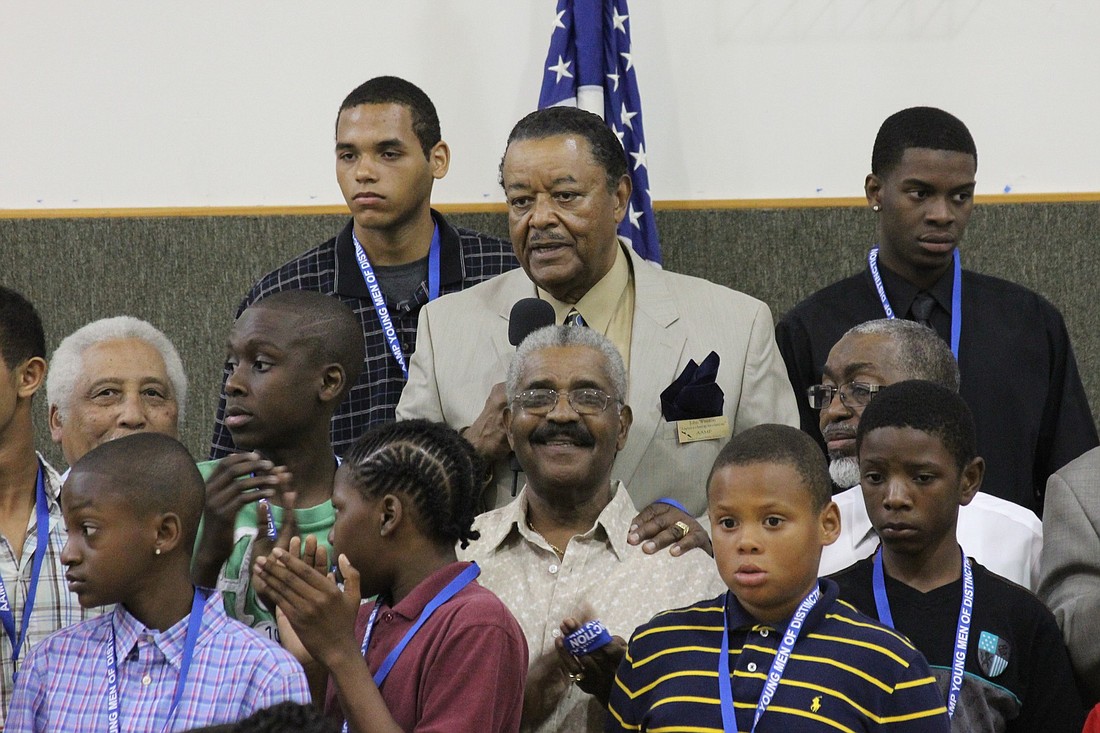- December 25, 2024
-
-
Loading

Loading

There was no attempt to make the world look pretty. For every word of praise uttered at the African American Mentoring Program’s annual awards banquet May 22, at First Baptist Church of Palm Coast, there was another word of grit.
As John Winston, president of the program, awarded high school seniors Marcus Polite and Daniel Wright for their accomplishments, he called for the attention of the younger boys in the audience and said in a pleading tone: “This is the example you want to set for yourself.”
The underlying message was clear, especially after mentor and guest speaker Michael Morton recited a statistic that one third of black men eventually spend time in jail: If you don’t work hard like Polite and Wright did, you could wind up behind bars, too.
It made a knot form in my stomach to hear it. How can we tell young boys that they have the capacity for greatness one minute, and tell them they are at-risk the next minute?
But this is the emotional tug-of-war that was being acted out at the banquet. At one point, Morton called up a young boy to the front of the gymnasium. Then, while the boy faced the audience of a few hundred people, Morton held a pair of handcuffs in one hand and a college diploma in the other and asked how to make sure this young boy followed the better path. His message was that it takes a village to raise a child.
It was a message of desperation vs. empowerment, of choice vs. fate.
“Let’s talk about appearance,” Morton said. “The pants thing. I hope you know what you’re mimicking.” Morton, who worked as an officer at a prison in New York, said that when people are incarcerated, their belts are removed, and that makes their pants fall down. When black men let their pants fall down around their rears today, they are simply perpetuating the prison style and, in a sense, accepting that prison is part of their heritage. The style of floppy, open boots originated in prison, too, because inmates’ shoelaces had to be removed. The foot-dragging motion of the chain gangs has survived in an exaggerated swagger in black culture today, he said.
“We need to think about breaking out of those chains,” Morton said, adding later, “Doing time is not a requirement to be hip.”
Winston placed the responsibility on the parents. He said many young black children suffer from “no-dad-itis,” or “having no dad at home to show them the way.” He said there will be spots on WNZF radio in the near future that say, “It’s 10 o’clock. Do you know where your children are?” And unfortunately, he said, “too many of us can’t answer that question.”
One of the youngest mentors in the program, Derrick Jackson, suggested that many of the kids in the mentoring program begin with a mentality that their environment has doomed them.
“If they see someone with success, they think, ‘They must not have come from the same type of home life that I came from,’” he said. But, as the young boys get to know the mentors, they begin to realize that success is possible for them, too.
Praise should be given to Winston, Jackson, Morton and the others in the African American Mentoring Program for volunteering countless hours to provide love and guidance for young men, not to replace the parents, but to be part of the village and to take up arms against this sea of troubling statistics.
Volunteers are needed. Visit aampflaglerschools.org.